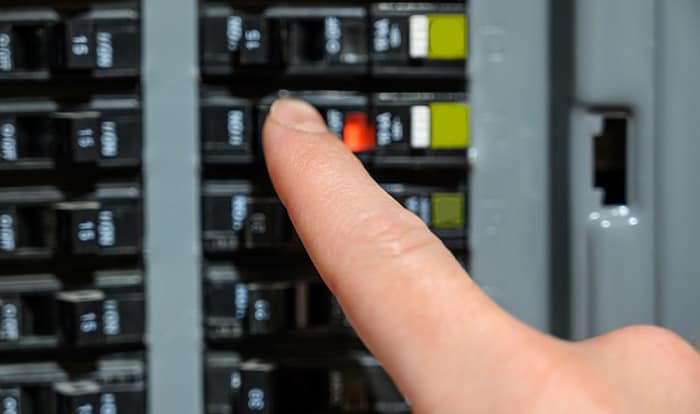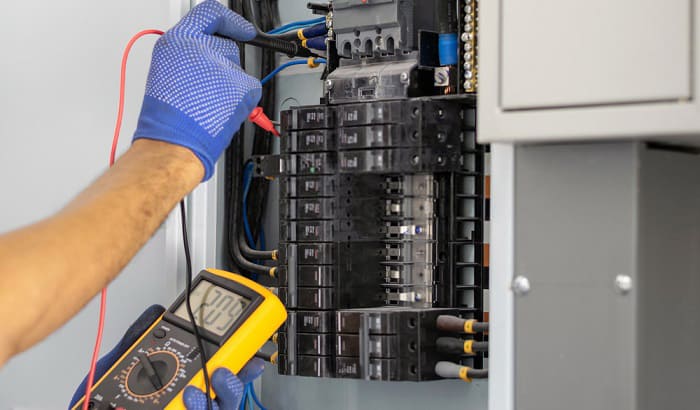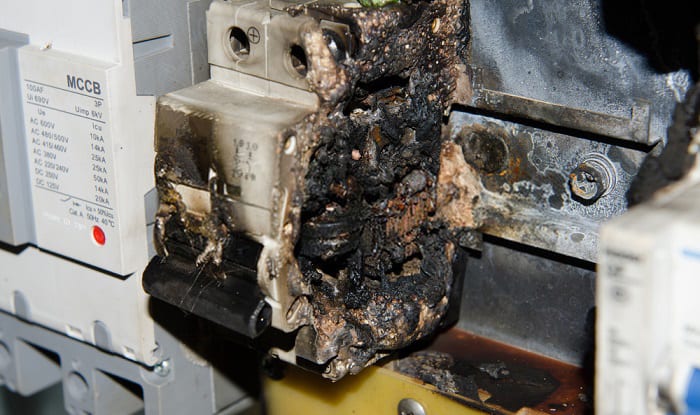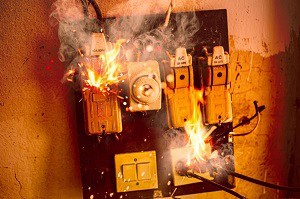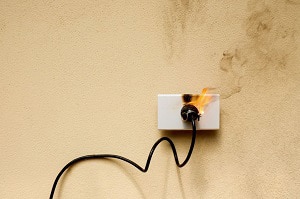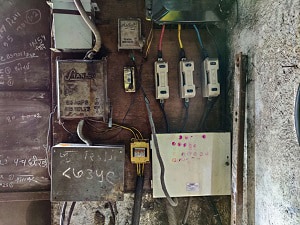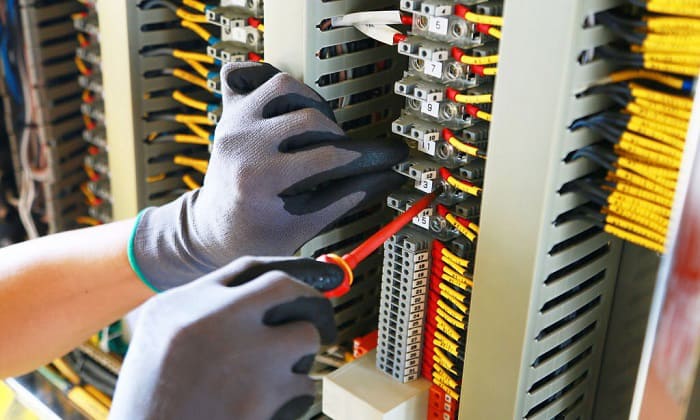Circuit breakers are integral electrical components in our homes. They do a multitude of electricity-related tasks that facilitate the function of our house’s circuitry. Circuit breakers are known for tripping when they register electrical currents higher than the circuit’s capable of handling.
In this regard, we homeowners must be aware as to why do circuit breakers trip, so that we know which electrical problems we have.
For the sake of brevity, each of the following reasons trips a breaker: short circuitry, grounding faults, arc faults, an overloaded circuit, and a corroded circuit.
For more information about what causes a circuit breaker to trip, head on and read more below!
Table of Contents
How Circuit Breakers Work
Circuit breakers are specifically installed to prevent any sort of electrical mishap from happening within lines. With this particular task in mind, circuit breakers are designed to detect any electrical qualities that are deemed “out-of-place” for certain electric circuits.
Simply speaking, circuit breakers work by cutting off the electrical connection of circuits when abnormalities are detected to prevent electrical accidents from transpiring and causing damage.
Breakers do this through the use of an internal spring mechanism, deactivating the circuit by force. Hence, the reason for the loud noise made by a circuit breaker trip.
However, to further discuss the intricacies of circuit breakers, you must first understand electricity and its components.
Mainly, electricity is composed of three distinct qualities that dictate how it flows through a circuit line. These qualities are voltage, resistance, and current.
To explain in a simple and more understandable manner, the electrical voltage can be akin to the pressure which moves electric charge. Electrical current, meanwhile, can be understood as the flow rate of electric charge in a circuit. Finally, electric resistance is simply the interaction of the conductor material against the electric charge flowing through it.
With this in mind, the sudden reduction of electrical resistance results in excessively high voltage and current, causing the breaker to trip.
What Causes Breaker to Trip
Consequently, there are a multitude of reasons why circuit breakers trip. They can range from circuitry integrity issues to accidental fault surges. For easier reading, I had decided to list the common reasons for circuit breaker tripping.
1. Overloaded Circuit
Circuits being accidentally overloaded is among the common reasons why breakers trip. To explain, an overloaded circuit happens when a lower-rated electric line draws an electrical load that is greater than its intended rating.
This specifically happens when a circuit is being utilized by multiple appliances, causing the line to draw on more electrical load to facilitate the operation of connected electrical devices.
When this happens, the overloaded circuit tends to heat up, triggering the breaker to trip as it senses electric loads greater than the intended capacity of the line it is monitoring.
To prevent an overloaded circuit, ensure that your home’s lines and circuitry are appropriate for the electrical load consumption of your connected appliances and light fixtures.
2. Short Circuits
Yet another leading cause of circuit breaker tripping. Short circuits are regarded to be more hazardous than overloaded circuits. The reason is that short circuits are caused by a “hot” wire coming into contact with a “neutral” wire, resulting in a large flow of electric current overcharging a line.
When this happens, intense heat is produced by the circuit. When this happens, your circuit breaker will trip, effectively preventing further damage to your line.
However, if a shorted circuit remains unchecked by your breaker, then you risk an electric fire from happening in your home.
To prevent short circuits from happening, you can perform circuit inspections for faulty and loose connections. Symptoms of a shorted circuit include a burning smell emanating from outlets or the breaker itself. Discolorations from the circuit line itself could also be a manifestation of shorted circuits.
3. Ground Fault Surges
Ground fault surges are quite similar to short circuits, with the only difference being that the “hot” wire makes contact with the ground wire of a circuit or the breaker box. When this happens, electrical flow is immensely increased, overloading lower-rated circuits.
4. Arc Fault
An arc fault happens when current flows through an unintended path, creating an arc. Arcs, in an electrical sense, are current discharges from the conductor to the grounding material.
This results in sparking between the contact points of a connection. When this happens, high-intensity heat is produced by arcing, which could burn the insulation of the circuitry.
Due to the unique properties of electrical arcing, neither common breakers nor fuses offer any protection against it. In this regard, the National Electrical Code recommends the installation of arc-fault circuit interrupters, a special type of breaker that senses power fluctuations produced by arcing accidents.
5. Older Circuit Breaker
An aged circuit breaker is more sensitive to current. In this sense, older breakers can trip even though an electric line is not overloaded with amperage. Breakers that are of old age are among the leading causes of constant tripping.
6. Loose or Corroded Connections
Loose or corroded connections may be why a circuit breaker tripped. As extra heat is produced due to the degradation of connections, breakers are immediately triggered, resulting in a tripped line.
What to Do When Your Breaker Trips Constantly
Do you have a breaker that constantly trips? If you have, then I’m sure that repeatedly switching the tripped breaker is a headache and unpleasant to deal with. Look, I understand your pain, as I myself have experienced this in my home in the past.
To deal with this problem, examine your appliances to see if any of the above causes apply to your situation. Another possible reason is that your circuit breaker might be failing, or that it isn’t optimized to adequately handle the current flowing through it.
Additionally, the symptoms of a bad circuit breaker are the following:
- A non-resetting breaker
- Damage is apparent on the breaker box
- Lights that flicker or burn out quickly
To ensure your home’s safety, I recommend that you obtain the services of expert electricians so that they can accurately help you with your breaker problem.
Conclusion
Knowing exactly why do circuit breakers trip is highly important for homeowners. However, lack of prior electrical knowledge can prove the task of determining the reason for tripping breakers difficult.
Taking this into consideration, I decided to write this guide so that you may know why breakers trip. I can only hope that I clearly explained everything outlined in this article.
If you have any questions, then ask away in the comment section below. Thanks for reading!
Other articles you may also like:

I am Edwin Jones, in charge of designing content for Galvinpower. I aspire to use my experiences in marketing to create reliable and necessary information to help our readers. It has been fun to work with Andrew and apply his incredible knowledge to our content.

